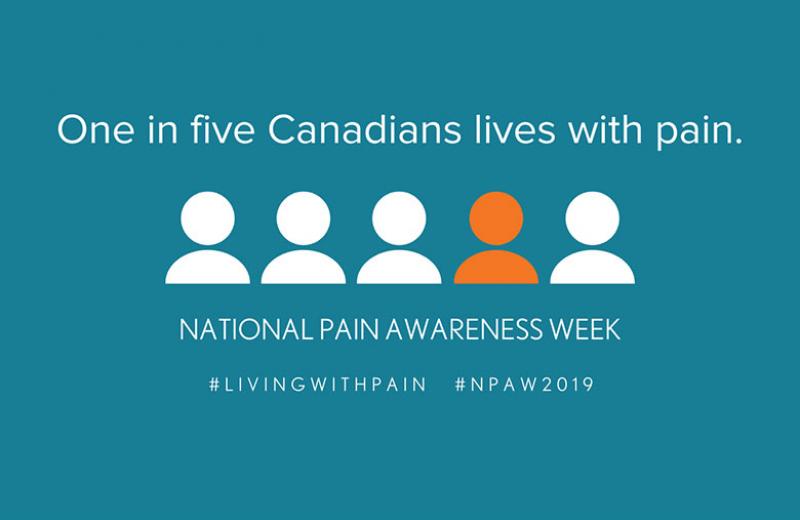We have all felt pain in our life, whether a stubbed toe, a paper cut, or some other minor injury. For most of us, pain is an infrequent and short term problem – something that we deal with and then get on with our day. However, for one in five Canadians, pain isn’t fleeting. It’s a constant and often excruciating companion.
For the last 15 years, the first week of November has been National Pain Awareness Week in Canada, a time to raise awareness of and support for people living with chronic pain. When you pause for a moment and consider the facts, I think you’ll see why that’s important:
- Chronic pain is the most frequent cause of suffering and disability.
- Pain is the number one reason people access health care, accounting for about half of all physician visits.
- People living with chronic pain are twice as likely to experience depression and anxiety.
- One in five Canadians live with chronic pain.
- About 60,000 adults within the North experience chronic pain.
- Approximately 1,400 Northern Health employees are estimated to experience chronic pain.
Chronic pain differs from acute pain in several ways. We all experience acute pain and can usually identify a trigger for the pain — such as an injury — and it usually goes away fairly quickly. The pain of a sprained ankle from stumbling on the stairs, a backache after lifting something heavy, or a painful incision after a surgery are all examples of acute pain.
Chronic pain is more subjective and can be a sensory and/or emotional experience. It’s not always possible to find a connection between an injury or illness and the pain being experienced, and even when it is, the pain is often much greater than we may expect. Chronic pain lasts for more than three months, and may come and go, or it may be constant. Spine disease, headache disorders, fibromyalgia, and arthritis are just a few of the conditions commonly associated with chronic pain.
Sometimes there is no apparent underlying cause – no prior injury and no apparent tissue damage. However, for the one in five Canadians living with chronic pain, their lives are significantly impacted.
In our province, Pain BC has developed numerous resources and self-management tools to support both individuals with chronic pain and their family members. If you or someone you care about is living with chronic pain, you may find the following resources helpful:
- In-person Pain Support & Wellness Groups (Quesnel & Fort St. John)
- Online self management tool: Live Plan Be
- Pain Support Line 1-844-880-PAIN (7246)
- 1:1 telephone Coaching for Health to help you reach your goals














Comments